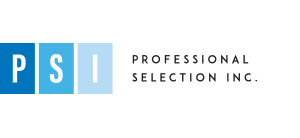The Secret To Working Effectively With a Recruitment Agency When Changing Jobs
Working with a Recruiter gives candidates access to unlisted vacancies, insights into potential employers and relieves the stress of negotiating an offer. Here’s how to make the relationship work for you…
Everyday there seems to pop up another “expert” who has never worked within a staffing agency but who’s giving advice on how to work with a recruiter.
Here’s what’s wrong with this; you are taking advice from someone who hasn’t actually worked as a staffing agency recruiter. Of course, they are entitled to their opinion. But all too often, these well meaning “experts” are unknowingly creating friction between the candidates and the very people who can help them secure another job.
Here are a few crucial steps to leveraging the help of an expert, while still maintaining total control over your career search.
Get clarity on what you are looking for in your next role
When I’m hiring for my team, I have a list with four subsections; Must have, Nice to have, Deal breaker and Nice not to have. The list includes both the technical and personal skills someone would need. This allows me to stay focused on what’s important to me and my business.
Why not turn that on it’s head and have a similar list for your next career move? Ask yourself, does “working from home” really belong on the “Must have” list? Sit down with your partner and review the list. Maybe together you decide to trade working from home for a shorter commute? Remember the fewer restrictions you put on yourself, the greater your options become.
Work with the right recruitment partner
Don’t leave your career to chance. Researchwhich agencies specialise in your niche. If you only take one thing away from this post, it’s this; talk to colleagues and contacts who have recently secured a new role. Who would they recommend? Do a Google search by job title and industry sector, which agencies are advertising?
By simply working with the right recruitment partner, you will save yourself so much time and energy – whilst protecting your confidentiality. A question I get asked all the time is “how many recruiters should I work with?”
Honestly – I don’t have a number, but what I would say is this; less is more.
Agree a process to move forward that works for everyone
You will find it easier to talk directly to recruiters within staffing agencies. Trust me, recruiters spend all day talking to candidates and hiring managers. They actually want to hear from candidates within their niche. In fact, did you know many recruiters are measured on how many qualified candidates they engage with?
Talk through your “priorities list” with the recruiter. Remember, the recruiter knows what their clients are looking for, allowing you to benchmark yourself. Ask the recruiter how the process works. Tell them the best way to contact you and when. Maybe you could commit to responding to a text within a few hours.
I highly recommend you commit to giving and receiving constructive feedback. This can be a little painful, but why would you not want to learn from the experience? The more in-depth feedback you can provide and receive, the closer you get to finding your ideal role.
Sometimes the client doesn’t provide detailed feedback in a timely manner, this is equally frustrating for both parties. All you can do is continue your search. Don’t let this derail you, or take to social media to vent frustrations about the company. Not only are you wasting precious energy and time, you are possibly damaging your own brand.
Be transparent
Remember the “experts” I mentioned earlier? Don’t listen to them. Tell the recruiter which companies you have already applied to. If you don’t feel comfortable disclosing this information, at least be honest when the recruiter calls you about a role. If you have already applied directly or indirectly, say so. Trust me, they don’t want any candidate ownership issues.
The reality is, searching for a new job is a full time job in itself. So why not let someone else relieve you of some of the pressure? It’s the job of the recruiter that you have partnered with to find you your next role. Not only does the recruiter have access to roles that have not been advertised, but they can actively help market you to your target companies.
One of the many values a recruiter can bring to you is at the interview stage. Imagine going in armed, already knowing what the hiring manager’s interview style is, the key points you need to address and the truth behind why the role is really open. You are going in with your eyes wide open, allowing you to evaluate the company as much as they are evaluating you.
Concluding remarks



